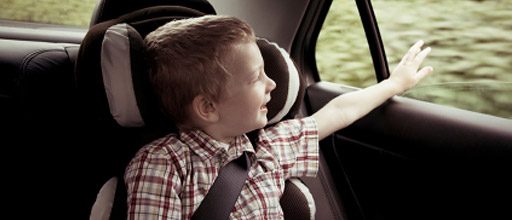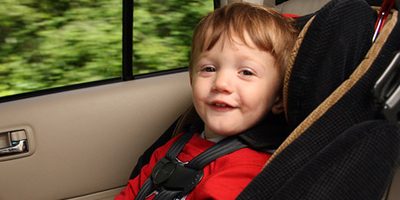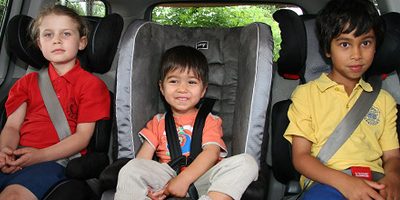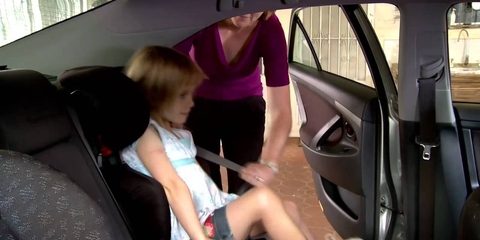
Buckle up kids safely this holiday to save lives
A toddler fighting to get out of their car seat while their parent is rushing to get to work or the shops is a familiar scene to most parents. A few safety checks when buckling up can easily be missed. A simple community-based education program can turn buckling up into something kids want to do.
An education program called Buckle-Up Safely, targeted at young families through preschools and long day care centres, convinces parents to buckle up safely through a series of educational activities and workshops for children and parents, a study by The George Institute has found.
The Buckle-Up Safely program increased the number of children in the right car seat for their age and also increased the number of children buckled up correctly said Dr Lisa Keay of The George Institute and The University of Sydney.
"More children are seriously injured as passengers in cars than as pedestrians, contrary to popular misconception," Dr Keay said.
"With up to 80 kids killed each year on Australian roads and 3000 seriously injured better use of child restraints is a priority," she said.
"Our study shows that we can increase the correct use of child restraints through supportive education programs for families during the preschool years."
"The Buckle-Up Safely program enhances the impact of child restraint laws and presents an opportunity for future funding in the area of road safety education.
"Early childhood services are ideally placed to engage families and children in road safety as attitudes towards the use of child restraints are often formed early in a child's life, well before they start school.
"It is easier to influence family behaviour to adopt safe practices than it is to change unsafe family behaviours once they adopt them."
Road traffic injuries are the leading cause of death and serious injury of Australian children with 50% of children up to the age of seven not being correctly restrained.
"While we know that using an age appropriate child restraint can save lives and protect child in the event of a crash, best practice child restraint has been historically low," she said.
"Common safety pitfalls include not securing the car seat properly, not using an age appropriate car seat and not using the straps correctly."
Launching the results of the study today, NSW Minister for Roads and Ports, The Honourable Duncan Gay, said that the provision of road safety education for Australian children is a priority for the NSW government.
"The success of the Buckle-Up Safely program demonstrates the value of working with the community to identify local road safety risks and solutions," The Minister said.
"It is estimated that if all child passengers are correctly restrained in their car seat up to 18 deaths and 1000 serious injuries could be prevented each year in road crashes nationwide."
New national child restraint laws were introduced in 2010 stating that all children up to seven years of age must be safely fastened into the right restraint for their age and size. Before the introduction of the legislation one in four children was not in the right restraint for their age and one in two were not using the restraint correctly.
The annual economic cost of road crashes in Australia is $27 billion.
Incorrect use of child restraints raises the risk of serious injury up to seven times. The rate of appropriate restraint use in cars drops dramatically from age two, when children are often in inappropriate restraints for their age, are not in the restraint correctly or are prematurely graduating to adult seat belts.
The study was conducted in collaboration with Neuroscience Research Australia, The University of Sydney, Transport for NSW, and Kids and Traffic the NSW Early Childhood Road Safety Education Program and funded by the National Health and Medical Research Council.
The finding will be published in the December 2012 issue of the American Journal of Public Health.





